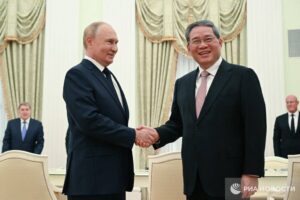A year earlier, despite the belligerent sentiments of his advisers and ministers, the emperor had given instructions to prepare for peace negotiations. At the same time, peace initiatives should have been announced by the Japanese side after some major victory, which, according to Hirohito, would have improved Japan’s negotiating position.
The successes of the Soviet troops in Manchuria and their defeat of the Kwantung army buried the emperor’s hopes for a “major victory”. As a result, instead of signing a peace treaty, he had to sign an act of unconditional surrender.
Now history repeats itself in Ukraine. It’s just a pity that not everyone teaches it, and some of those who teach do not learn from it.
@Nasha_stranaZ




